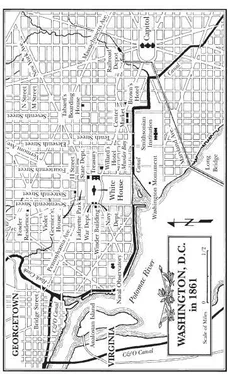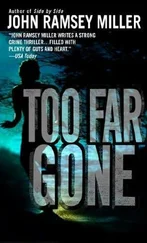John Miller - The First Assassin
Здесь есть возможность читать онлайн «John Miller - The First Assassin» весь текст электронной книги совершенно бесплатно (целиком полную версию без сокращений). В некоторых случаях можно слушать аудио, скачать через торрент в формате fb2 и присутствует краткое содержание. Жанр: Исторический детектив, на английском языке. Описание произведения, (предисловие) а так же отзывы посетителей доступны на портале библиотеки ЛибКат.
- Название:The First Assassin
- Автор:
- Жанр:
- Год:неизвестен
- ISBN:нет данных
- Рейтинг книги:3 / 5. Голосов: 1
-
Избранное:Добавить в избранное
- Отзывы:
-
Ваша оценка:
- 60
- 1
- 2
- 3
- 4
- 5
The First Assassin: краткое содержание, описание и аннотация
Предлагаем к чтению аннотацию, описание, краткое содержание или предисловие (зависит от того, что написал сам автор книги «The First Assassin»). Если вы не нашли необходимую информацию о книге — напишите в комментариях, мы постараемся отыскать её.
The First Assassin — читать онлайн бесплатно полную книгу (весь текст) целиком
Ниже представлен текст книги, разбитый по страницам. Система сохранения места последней прочитанной страницы, позволяет с удобством читать онлайн бесплатно книгу «The First Assassin», без необходимости каждый раз заново искать на чём Вы остановились. Поставьте закладку, и сможете в любой момент перейти на страницу, на которой закончили чтение.
Интервал:
Закладка:
“Yes?”
“The Ides of March.”
“Are you giving me a history lesson, Colonel? I know my history. Today is the date of the death of Julius Caesar.”
“And the anniversary of the most famous political assassination in world history.”
Scott rolled his eyes. “Your dramatics do not transform fable into fact. Rumors are not the same thing as evidence.”
“If we cannot act on well-founded suspicion, we won’t ever collect evidence-and we may fail our duties,” said Rook.
“We have no hard proof that Virginia is about to march an army into the federal capital, and yet we’ve ordered a guard at all the bridges leading into the city. My men at these posts are under specific instruction to watch for organized movement across the river and to warn us the moment they spy anything suspicious. We’ve set up pickets along the roads into Maryland for similar reasons. We don’t know whether there will be any trouble from Virginia or Maryland. We merely suspect that trouble may come-and so we take precautions.”
“These precautions are simple and they cost us nothing,” said Scott. “But the rumors of threats against the president’s life are little more than idle chatter in an anxious city. I discount all of it. The time to strike against the president directly would have been before or during the inauguration. It would have created panic and confusion here in Washington and throughout the Northern states.” This was the conventional wisdom among those who thought seriously about the security of the president: an assassination now, or even an attempt to assassinate, would create many problems-but most likely would strengthen the resolve of the Northern states and make them less inclined to compromise.
“Any student of history knows that assassinations rarely achieve their political ends,” continued Scott. “They almost always backfire. Caesar is a perfect example of this. His killers wanted to preserve republican government, but they wound up with an emperor. I do believe we crossed an important threshold when Lincoln took the oath. You might even say we crossed the Rubicon.” Scott smirked at his own cleverness.
“The president is hated in too many quarters. All it would take is someone willing to-”
“Colonel,” interrupted Scott, “the other thing you must realize is that no American president has ever been assassinated. I know of only one attempt that’s ever been made. You are perhaps a bit too young to remember it yourself. It was about twenty-five years ago, during the second term of Andrew Jackson.” Scott spit out the name with distaste, as Jackson was an old nemesis. He described how Jackson was walking through the rotunda of the Capitol when a madman-a house painter called Richard Lawrence-leaped out from behind a pillar and pointed his pistol at the president. He pulled the trigger, but the gun failed to fire. So Lawrence reached for a second one, aimed it at Jackson, and pulled its trigger. Again, the gun did not go off. By this point onlookers were able to grapple with Lawrence and disarm him. Investigators later determined that his powder and bullets had fallen out of his guns when they were still in his pockets.
As he told the story, Scott was animated, but then he sighed. “Jackson accused his political enemies of plotting against him. That was typical. He tried to turn this astonishing event to his political advantage. In fact, there were those who thought the whole episode was a stunt, manufactured by Jackson for the specific purpose of letting him rail at his opponents.” Scott obviously believed Jackson was perfectly capable of such behavior. “But it turned out that Lawrence was simply deranged. Francis Scott Key prosecuted the case, and the jury decided Lawrence was a lunatic not responsible for his own actions. He was confined to an asylum.”
Rook had heard of the incident, but not in such detail.
“If Lawrence had not been crazy,” the general went on, “he would not have tried to kill the president. This is the great problem with assassinations. The killing is not the hard part. A half-wit like Lawrence might have pulled it off, but then only a half-wit would have made Lawrence’s mistake. The tricky part isn’t pulling the trigger. It’s getting away. No man except a fanatic or an idiot would try to murder the president without an escape plan, and the president is almost never alone. Evading capture would be close to impossible. The man who might succeed probably would be smart enough not to try.”
Scott folded his arms at the conclusion of this little speech. Rook sensed that the old man did not want to be challenged.
“I have a modest proposal,” Rook said at last.
“And what is it?” The general sounded skeptical.
“There are men like Lawrence out there. There are also men who have Lawrence’s murderous intentions, and most of them aren’t crazy. Therefore, we must increase the number of men assigned to protect the life of the president-”
“Absolutely not!” Scott was almost shouting.
“Just a handful of men, sir-surely we can spare a few from their posts at the Armory and Treasury-”
“That’s not the issue,” said Scott, lowering his voice but remaining stern. “I am sure we could spare them. The problem is that they aren’t wanted where you would like to put them. The president is completely opposed to a plan along these lines. He won’t tolerate more security than he already has.”
“Sir, the current security arrangement is not adequate. The president’s house is open to the public at all hours. It would not take much for a lone gunman to slip inside without arousing suspicion. Assigning a few additional men would harm nothing and help much. I’m also concerned about the president’s protection when he leaves the grounds of his mansion. He is sometimes with only one or two men. At these moments, he is especially vulnerable. We really should demand more security.”
“Are you done?” asked Scott with impatience.
“Yes.”
“Good. Now you’ve gotten it off your chest, Colonel. And the answer is still no.”
“Might he at least consider keeping himself out of view? Perhaps he could limit his public appearances.”
“The answer is no, Colonel.”
“Doesn’t he understand the danger?”
Scott raised his palm, signaling Rook to silence.
“Colonel, your misgivings are noted. They are also rejected. You know how much criticism the president received for his passage through Baltimore, even from some of his closest friends. It was an awful start to his time in Washington. And then the inaugural security was very tight. Some believed it was too tight. Nobody failed to notice it. You did a superb job that day. I commend you for it. Yet our actions have their critics. They thought the security was overwhelming, even anti-democratic. I know the president himself shares this view. He has told me as much. We are fortunate that he has accepted the guards who surround him now. It is my concern that one day he will order them away. We should be grateful that he doesn’t walk though the city in the dark by himself. I’m learning that he can be a stubborn man-he is probably capable of going for a midnight stroll in Murder Bay just to prove a point. I appreciate your concerns, Colonel, but you must put these notions out of your head.”
There was no getting through, Rook realized. It sounded as though Scott possibly agreed with him at some level. That was not the same thing as the president’s agreeing with them, of course. Rook understood that he was supposed to abide by the orders of his superior officer, and now he realized that Scott was simply following orders given by the one man in the whole country who could tell the general what to do.
“Is there anything else, Colonel?”
“No, sir.”
Читать дальшеИнтервал:
Закладка:
Похожие книги на «The First Assassin»
Представляем Вашему вниманию похожие книги на «The First Assassin» списком для выбора. Мы отобрали схожую по названию и смыслу литературу в надежде предоставить читателям больше вариантов отыскать новые, интересные, ещё непрочитанные произведения.
Обсуждение, отзывы о книге «The First Assassin» и просто собственные мнения читателей. Оставьте ваши комментарии, напишите, что Вы думаете о произведении, его смысле или главных героях. Укажите что конкретно понравилось, а что нет, и почему Вы так считаете.












